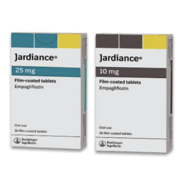Consumer groups raise concerns about ‘complicated’ Scam Prevention Framework
By
Danielle F.
- Replies 6
Navigating the digital world could be a minefield for anyone—particularly concerning for seniors, who are often prime targets of such schemes.
The government's proposed compensation scheme for scam victims became a step towards addressing this growing issue.
However, experts started raising red flags about the possible burdens the draft law could impose on victims seeking redress.
The Albanese Government's plan, which was part of the Scams Prevention Framework (SPF), should provide a safety net for scam victims.
The SPF was released for public consultation last month and included several anti-scam measures like mandatory industry codes and Internal Dispute Resolution (IDR) processes.
These measures should allow the Australian Competition and Consumer Commission (ACCC) to issue fines of up to $50 million to entities that failed to protect Australians from scammers in accordance with the Consumer and Competition Act (CCA).
Additionally, a single External Dispute Resolution (EDR) operated by the Australian Financial Complaints Authority (AFCA) should handle cases where businesses are at fault for taking money out of Aussies.
The SPF should put the responsibility onto businesses to prevent scams by implementing robust internal measures.
Minister for Financial Services Stephen Jones emphasised that the focus of the new law is on prevention and that losses should be stopped before they even happen.
'We will do this by placing new obligations on companies to protect their customers. Liability and compensation arise when there is a breach of obligation,' Minister Jones stated.
'The law will establish new dispute resolution pathways where currently there are none. It will create new grounds for compensation where currently there are few.'
Despite these ambitious goals, consumer advocates raised concerns that the proposed framework will not prioritise victims.
Drew MacRae from the Financial Rights Legal Centre shared that the SPF could place an undue burden on victims, who often face significant losses due to scams.
'Urgent action is required to establish an effective consumer protection framework that prevents, detects, disrupts and responds to scams and addresses the harms being done, in a response that places the consumer at the heart of the framework,' Mr MacRae stated.
'While we welcome the government acting on the multi-billion-dollar scam problem, the SPF places the burden of responding to a scam—which often robs a person of life-changing amounts—onto the victim.'
Under the proposed model, consumers would be reimbursed by their banks quickly.
The banks will then later determine how to apportion the loss across the industry.
This would streamline the process and alleviate stress for scam victims.
Despite these concerns, Minister Jones stressed the urgency of legislating the framework, citing national interests and avoiding any political interference in establishing these new laws.
In earlier news, another scam victim voiced out their concerns regarding SPF, following his father's experience with an investment scam.
David Sweeney and his father went through a gruelling, five-year legal battle to recoup their losses from an investment scam.
It's crucial to stay informed about the developments in scam prevention and compensation, as well as to understand consumers' rights.
Everyone should know the support systems available should one fall victim to a scam.

Have you or someone you know been affected by a scam? What do you think about the SPF and the support it could give to scam victims? Share your thoughts and opinions with us in the comments below.
The government's proposed compensation scheme for scam victims became a step towards addressing this growing issue.
However, experts started raising red flags about the possible burdens the draft law could impose on victims seeking redress.
The Albanese Government's plan, which was part of the Scams Prevention Framework (SPF), should provide a safety net for scam victims.
The SPF was released for public consultation last month and included several anti-scam measures like mandatory industry codes and Internal Dispute Resolution (IDR) processes.
These measures should allow the Australian Competition and Consumer Commission (ACCC) to issue fines of up to $50 million to entities that failed to protect Australians from scammers in accordance with the Consumer and Competition Act (CCA).
Additionally, a single External Dispute Resolution (EDR) operated by the Australian Financial Complaints Authority (AFCA) should handle cases where businesses are at fault for taking money out of Aussies.
The SPF should put the responsibility onto businesses to prevent scams by implementing robust internal measures.
Minister for Financial Services Stephen Jones emphasised that the focus of the new law is on prevention and that losses should be stopped before they even happen.
'We will do this by placing new obligations on companies to protect their customers. Liability and compensation arise when there is a breach of obligation,' Minister Jones stated.
'The law will establish new dispute resolution pathways where currently there are none. It will create new grounds for compensation where currently there are few.'
Despite these ambitious goals, consumer advocates raised concerns that the proposed framework will not prioritise victims.
Drew MacRae from the Financial Rights Legal Centre shared that the SPF could place an undue burden on victims, who often face significant losses due to scams.
'Urgent action is required to establish an effective consumer protection framework that prevents, detects, disrupts and responds to scams and addresses the harms being done, in a response that places the consumer at the heart of the framework,' Mr MacRae stated.
'While we welcome the government acting on the multi-billion-dollar scam problem, the SPF places the burden of responding to a scam—which often robs a person of life-changing amounts—onto the victim.'
MacRae suggested that a uniquely Australian Reimbursement Model could be a more victim-centred approach.Under the proposed model, consumers would be reimbursed by their banks quickly.
The banks will then later determine how to apportion the loss across the industry.
This would streamline the process and alleviate stress for scam victims.
Despite these concerns, Minister Jones stressed the urgency of legislating the framework, citing national interests and avoiding any political interference in establishing these new laws.
In earlier news, another scam victim voiced out their concerns regarding SPF, following his father's experience with an investment scam.
David Sweeney and his father went through a gruelling, five-year legal battle to recoup their losses from an investment scam.
It's crucial to stay informed about the developments in scam prevention and compensation, as well as to understand consumers' rights.
Everyone should know the support systems available should one fall victim to a scam.
Key Takeaways
- The Albanese Government recently proposed a new compensation scheme for scam victims, which should be legislated by the end of the year.
- Experts warned that the proposed laws could be overly complex and could place an unnecessary burden on victims.
- The Scams Prevention Framework (SPF) included mandatory Internal Dispute Resolution (IDR) and significant fines for entities like banks, telcos, and social media sites that fail to protect Australians from scammers.
- Criticisms regarding the SPF's complexity recently surfaced, with consumer groups suggesting a simpler Australian Reimbursement Model for expedited redress.








